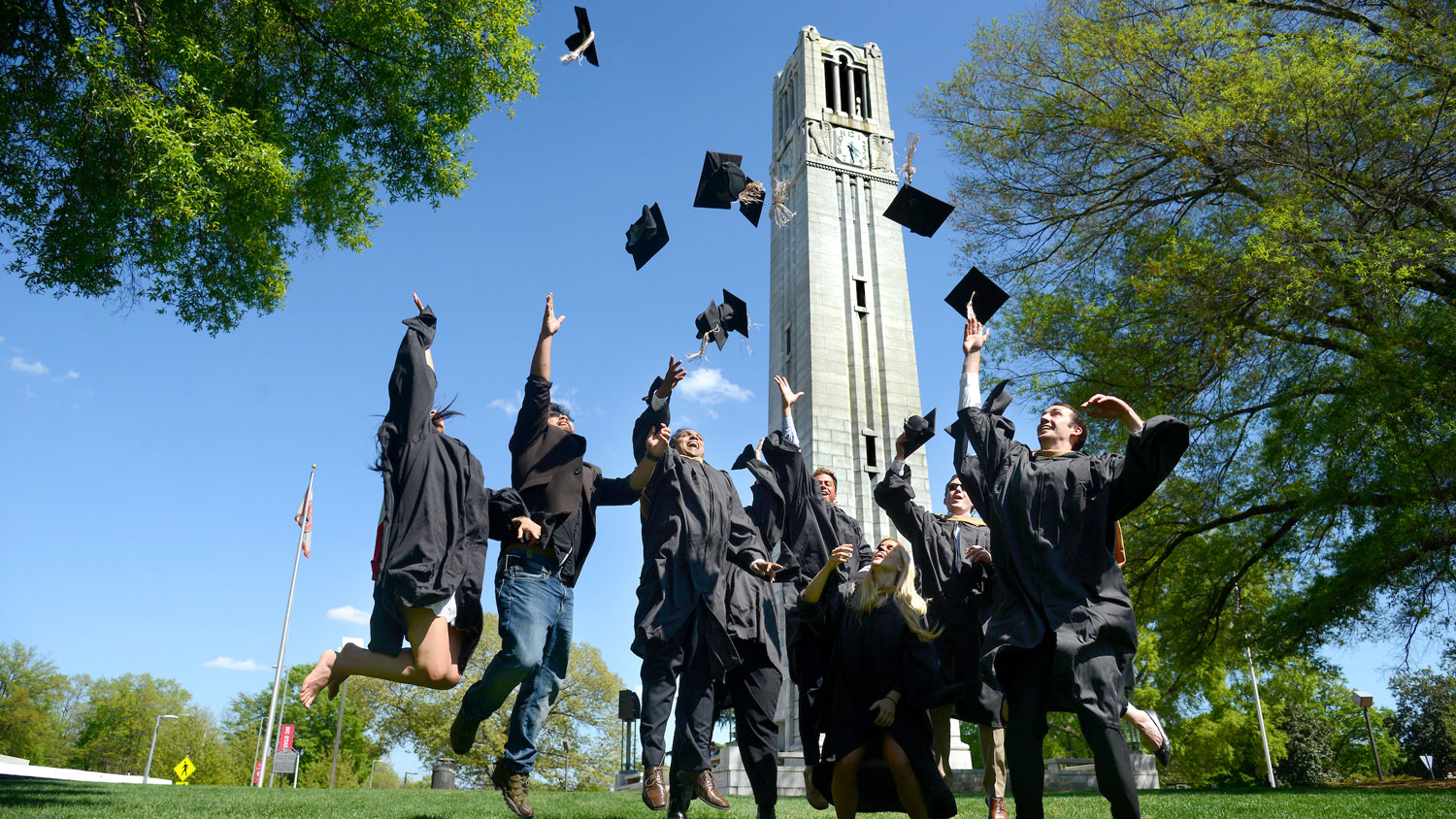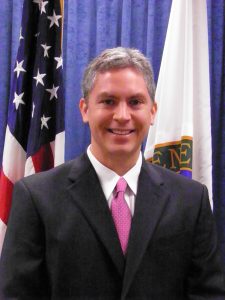Sam Wheeler ‘17 PHD: Going the Extra Mile

When Sam Wheeler walks across the stage on Dec. 15 to receive his Ph.D. in science education, it will be a moment eight and half years in the making.
“Sam has done this degree his own way, making time for wonderful opportunities, such as travel with students to the Galapagos and Cern, involvement with AP exams, an Einstein Fellowship and serving as president of the North Carolina Science Teachers Association,” said NC State College of Education Associate Professor Meg Blanchard, Wheeler’s faculty advisor.
“At times, I wished that he’d say no,” she jokes.
Wheeler has balanced countless extracurricular opportunities with his studies at the College of Education, not to mention his full-time job as a physics teacher at the North Carolina School of Science and Mathematics in Durham.

Wheeler, who was a Teaching Fellow and got his undergraduate degree in physics and science education at NC State, decided to return to the College of Education for his Ph.D. because he saw the need for reform in our education system.
“I wanted to be more of a leader in science education,” Wheeler said. “This degree will help me move STEM education in the direction I think it needs to be moving in.”
For instance, Wheeler thinks that physics education is in need of a makeover. Wheeler strives to take an interdisciplinary approach to teaching his students physics, demonstrating how other sciences, like biology, can be applied to better understand it. He felt passionately enough about this to write his dissertation on the topic.
“Physics is historically taught from the standpoint of a white male,” said Wheeler. “So, if you’re a white male, you more than likely will see physics taught in a way that you understand, that you appreciate and that you’re culturally aware of. But what if instead of presenting physics homework questions in terms of things blowing up — you know, things that males stereotypically enjoy — what if I gave you options to do that same physics with different examples?”
Wheeler gathered from previously conducted research that female students tend to be more interested in science problems that have to do with biology or the medical field, because they are able to emotionally relate to these types of science. But he wondered what the outcome would be if he gave students a choice in the context of their physics work.
So, Wheeler wrote physics questions in a traditional way, with a biology lens, and even with a sports context, and he let his students pick between the three. After conducting this exercise on a series of assignments, he found that female students primarily picked the questions with a biology application, whereas male students preferred the traditionally written questions. Wheeler also found that giving his students a choice in context led to improved outcomes for female students, although outcomes for males remained the same.
“The female students showed significant improvement after this series of assignments, so there is definitely a benefit of giving students options in the context of how they learn physics,” said Wheeler.
If there’s one thing that can be said about Wheeler as a student, a researcher and as a teacher, it’s that he always goes the extra mile, Blanchard said.
“He is an educator in the greatest sense of the word, always learning new things and passionate about helping his students,” she said. “I have no doubt that Sam is going to help prepare excellent future science teachers and that his research will help to increase the number of women who pursue physics and other STEM majors.”
- Categories:


